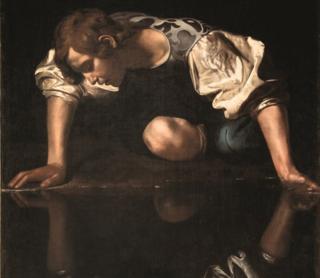This website uses cookies so that we can provide you with the best user experience possible. Cookie information is stored in your browser and performs functions such as recognising you when you return to our website and helping our team to understand which sections of the website you find most interesting and useful.
 Image copyright Enrico Fontolan/Palazzo Barberini
Image copyright Enrico Fontolan/Palazzo BarberiniSome of Europe's best known art museums are reopening after closing in March for the Covid-19 pandemic but it will be far from business as usual.
For most of these museums and galleries, it will be a matter of limiting visitor numbers, intensifying cleaning procedures and insisting all tickets be bought online in advance.
Normally at this time of year Amsterdam's huge and world-famous Rijksmuseum would have up to 12,000 visitors daily.
From this week that number will be strictly limited to 2,000 a day. But after weeks of unwanted closure the museum's director Taco Dibbits is delighted to be reopening even on a limited scale.
Several major public galleries around Europe have decided the arrival of June is the right time if not to fling open the doors at least to open them very carefully.
Amsterdam's Van Gogh Museum and the Rembrandt House also reopen this week. Dibbits says the decision to open Dutch museums is a matter of government policy.
"But I think we all felt this was the time to give the people of the Netherlands their museums back, which are so much loved. The Rijksmuseum is open with our normal hours although I think for now there will not be many tourists.
"Every case is different, not just in the Netherlands, and we all have to find our own way to provide a safe experience for visitors. I think almost all museums will insist visitors buy a ticket in advance and keep to the slot they are given online.
"But once you are in our museum you are able to roam free and we are deliberately keeping our visitors to about 20% of what they would normally be. You still have to keep 1.5 metres from other people but we wanted to make the experience of the museum as normal as possible."
Among other important venues reopening this week is the Frank Gehry-designed Guggenheim Bilbao in northern Spain. It too has been shut since the middle of March.
Initially it will only open from 2pm most days but it's coordinating with the city's Fine Arts Museum which will be open when the Guggenheim is closed. Its older but much smaller cousin, the Peggy Guggenheim Collection in Venice is also open again from this week.
And in Rome one of Europe's great cultural glories is viewable by tourists once more - the Sistine Chapel, whose ceiling was painted by Michelangelo from 1508.
For now visitors will need a face mask and will have their temperature taken when they enter the Vatican Museums. The Vatican authorities say there be will health workers on hand to help.
One of Europe's most gorgeously located galleries of modern art is Denmark's Louisiana Museum on the coast an hour from Copenhagen, looking across the water to Sweden. It reopened on Friday.
It benefits from an outside sculpture park, as well as the displays inside and was reopened last week by the Prime Minister Mette Frederiksen.
Like virtually all the museums which reopen this week it wants people to book ahead online.
But Jan Hybertz Goricke of the museum says visitor numbers are generally about 2,500.
"So we will try to get people in even if they haven't pre-booked. I think all the museums which have reopened are going to find a way through the first weeks, trying to ensure visitors have an experience as good as possible."
The Louvre in Paris, possibly the world's most famous art museum, remains closed but it's scheduled to open on 6 July. The Louvre Lens, in eastern France, starts to reopen from this week.
All these changes are provisional: if Covid-19 starts to peak again it's possible some or all of these re-openings could be reversed. And in many places it will remain hard or impossible to visit these museums without pre-booking for months to come.
But this week art galleries and museums in certain European countries have something to celebrate at last.
Follow us on Facebook or on Twitter @BBCNewsEnts. If you have a story suggestion email entertainment.news@bbc.co.uk.



 Africana55 Radio
Africana55 Radio 
